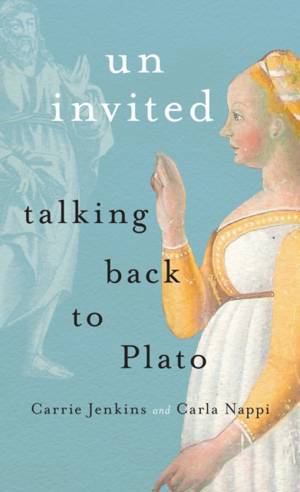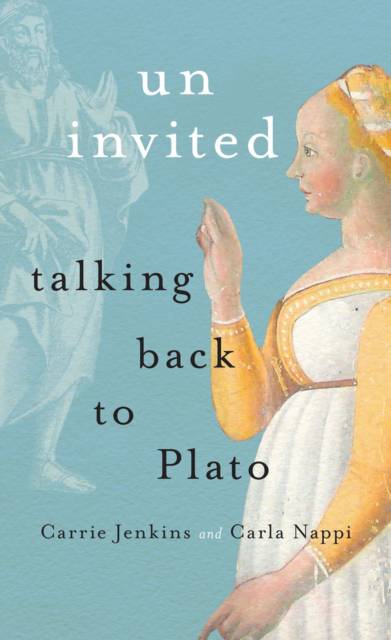
- Afhalen na 1 uur in een winkel met voorraad
- Gratis thuislevering in België vanaf € 30
- Ruim aanbod met 7 miljoen producten
- Afhalen na 1 uur in een winkel met voorraad
- Gratis thuislevering in België vanaf € 30
- Ruim aanbod met 7 miljoen producten
Zoeken
Omschrijving
Plato's Symposium depicts a group of men giving a series of speeches about the nature of love, with themes ranging from religion and metaphysics to medicine and pregnancy. The lone woman in the room, a flute girl, is sent away as the discussion turns to serious matters; at the same time, the wisest of the men attributes his theories to a woman, the possibly fictional Diotima. Despite their absence from this important intellectual exchange, women are part of Symposium. What can contemporary feminist readers do with this troubling yet immeasurably influential work? In Uninvited historian Carla Nappi and philosopher Carrie Jenkins talk back to Plato in poetry, inspired by the voices of women characters who were not previously permitted to speak. Images and ideas from Symposium are refracted through multiple lenses to reveal a tumult of mystical, intellectual, pedagogical, and sexual ideologies. Sometimes beautiful, sometimes horrific, these poems dance within and between the lines of Symposium, carving space for new kinds of conversations about love, with themes ranging from gender and voice to power and violence. Designed to be read with or without prior knowledge of Plato, this book invites the uninvited to join a strange, amorphous, and unending conversation on the nature of love and desire - and on the possibilities intellectual and creative activity can offer.
Specificaties
Betrokkenen
- Auteur(s):
- Uitgeverij:
Inhoud
- Aantal bladzijden:
- 112
- Taal:
- Engels
Eigenschappen
- Productcode (EAN):
- 9780228001317
- Verschijningsdatum:
- 21/05/2020
- Uitvoering:
- Hardcover
- Formaat:
- Genaaid
- Afmetingen:
- 150 mm x 231 mm
- Gewicht:
- 272 g

Alleen bij Standaard Boekhandel
+ 88 punten op je klantenkaart van Standaard Boekhandel
Beoordelingen
We publiceren alleen reviews die voldoen aan de voorwaarden voor reviews. Bekijk onze voorwaarden voor reviews.








